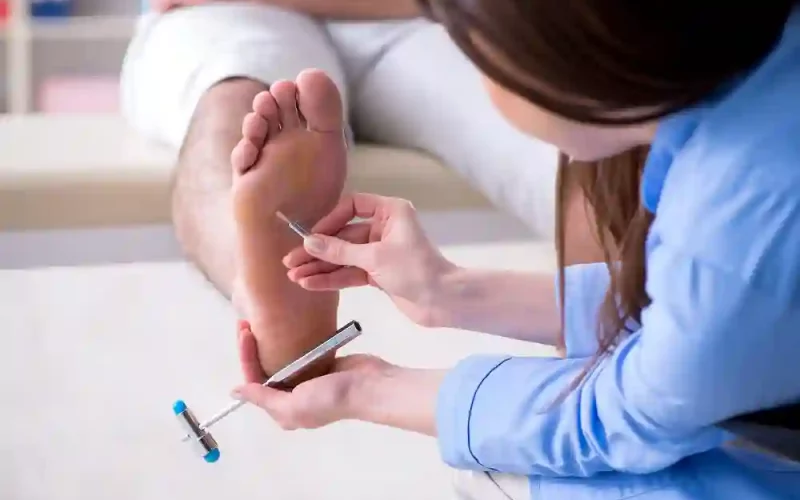Imagine waking up every day to work, not realizing that your job could slowly damage your nervous system. Unfortunately, this is the reality for many individuals who work in high-risk professions for peripheral neuropathy. Peripheral neuropathy affects the nerves outside the brain and spinal cord, causing pain, numbness, and tingling in the hands and feet.
While the condition can have various causes, certain professions may be at a higher risk for developing peripheral neuropathy NJ symptoms due to exposure to occupational hazards. This article will explore some of these most high-risk professions for peripheral neuropathy and the preventative measures that can protect your health.
Construction Workers
Construction workers are exposed to various hazards that can cause peripheral neuropathy, including vibrations from power tools and heavy machinery and exposure to toxic chemicals. Vibrations from power tools and heavy machinery can cause damage to the nerves in the hands and arms, leading to symptoms of peripheral neuropathy.
Unfortunately, many construction workers may not realize they are at risk for developing peripheral neuropathy until they start experiencing symptoms. It is important to take preventative measures to protect your health, such as wearing protective gear and using ergonomic tools to reduce the impact of vibrations on your hands and arms.
Factory Workers
Factory workers may be at risk for peripheral neuropathy. One of the most significant risks is exposure to chemicals such as pesticides, solvents, and heavy metals. These chemicals can cause nerve damage and lead to symptoms of peripheral neuropathy.
Repetitive motion injuries are also common among factory workers, especially those who work on assembly lines. Repeating the same motion can cause nerve damage and peripheral neuropathy.
To reduce the risk of developing peripheral neuropathy, you should be well informed on the safe handling and disposal of chemicals. You should also wear personal protective equipment such as gloves, goggles, and respirators during work shifts.
Electricians
Electricians are exposed to high-voltage electricity and can suffer electrical burns that can cause peripheral neuropathy. They may also be at risk for developing peripheral neuropathy due to exposure to chemicals used in the electrical industry, such as solvents and adhesives. These chemicals can cause nerve damage in the long run.
If you are an electrician, consider wearing protective equipment such as gloves and flame-resistant clothing when working with high-voltage electricity. Taking these proactive steps will help protect you from developing peripheral neuropathy symptoms.
Plumbers
Plumbers who work with lead pipes and soldiers may be at risk for peripheral neuropathy due to exposure to lead. In addition to lead exposure, plumbers may be at risk for developing peripheral neuropathy due to physical strain from heavy pipes and tools.
Wear personal protective equipment when working with lead pipes and solder to reduce the risk of developing peripheral neuropathy. You should also practice proper lifting techniques and use ergonomic tools to minimize the risk of physical strain and repetitive motion injuries.
Healthcare Workers
Healthcare workers who handle chemotherapy drugs are at risk for peripheral neuropathy due to the toxic effects of these drugs on the nervous system. In addition to chemotherapy drugs, they may be at risk for developing peripheral neuropathy due to exposure to other toxic substances, such as anesthesia.
Since healthcare workers often stand for long periods, they can be at risk of nerve damage to their legs. You should always take breaks and stretch during your shifts to lower this risk.
Prevention and early detection are crucial in managing peripheral neuropathy. Recognizing the above high-risk professions for peripheral neuropathy and taking measures can reduce your likelihood of developing this debilitating condition.
Also, by raising awareness of the potential hazards and taking proactive measures to prevent peripheral neuropathy, you help to ensure a safer and healthier workplace for your colleagues. If you notice symptoms or peripheral neuropathy, do not hesitate to contact your doctor immediately to prevent the potential of permanent nerve damage.











